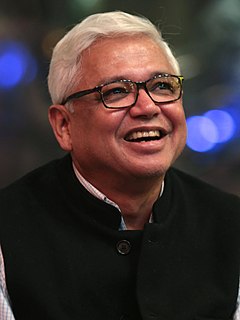A Quote by Ravi Zacharias
The four absolutes we all have in our minds: love, justice, evil, and forgiveness.
Related Quotes
Justice is not Healing. Healing cometh only by suffering and patience, and maketh no demand, not even for Justice. Justice worketh only within the bonds of things as they are... and therefore though Justice is itself good and desireth no further evil, it can but perpetuate the evil that was, and doth not prevent it from the bearing of fruit in sorrow.
In order to receive forgiveness, we need to place our trust in Christ as our Savior and the Lord of our lives. But if we reject Christ, then we reject God's mercy and fall back on His justice. And you know where you stand there. If we reject Jesus' offer of forgiveness, then there is simply is no one else to pay the penalty for your sin-except yourself.
As we forge deeper into this issue of forgiveness, we must be prepared to open up and discuss things that bother us before they escalate to a crisis level. We must examine our struggles with forgiveness in which there are not overt offenses or blatant betrayals. I'm convinced that seeds of resentment take root in the silent frustrations that never get discussed. Other people cannot read our minds--or our palms!--and that is why we have tongues to speak.
[T]hat state, love, is so utterly alien to that other idea without which we cannot live as human beings --- the idea of justice. It is only because love is so profoundly the enemy of justice that our minds, shrinking in horor from its true nature, try to tame it by uniting it with its opposite [...] in the hope that if we apply all the metaphors of normality, that if we heap them high enough, we shall, in the end, be able to approximate that state metaphorically.
Whatever we do, we must keep God in the forefront. Let us be Christian in all of our actions. But I want to tell you this evening that it is not enough for us to talk about love, love is one of the pivotal points of the Christian face, faith. There is another side called justice. And justice is really love in calculation. Justice is love correcting that which revolts against love.
The great masquerade of evil has played havoc with all our ethical concepts. For evil to appear disguised as light, charity, historical necessity, or social justice is quite bewildering to anyone brought up on our traditional ethical concepts, while for the Christian who bases his life on the Bible, it merely confirms the fundamental wickedness of evil.
It's forgiveness that makes us what we are. Without forgiveness, our species would've annihilated itself in endless retributions. Without forgiveness, there would be no history. Without that hope, there would be no art, for every work of art is in some way an act of forgiveness. Without that dream, there would be no love, for every act of love is in some way a promise to forgive. We live on because we can love, and we love because we can forgive.
Because we have sought to cover up past evil, though it still persists, we have been powerless to check the new evil of today.Evil unchecked grows, Evil tolerated poisons the whole system. And because we have tolerated our past and present evils, international affairs are poisoned and law and justice have disappeared from them.


































